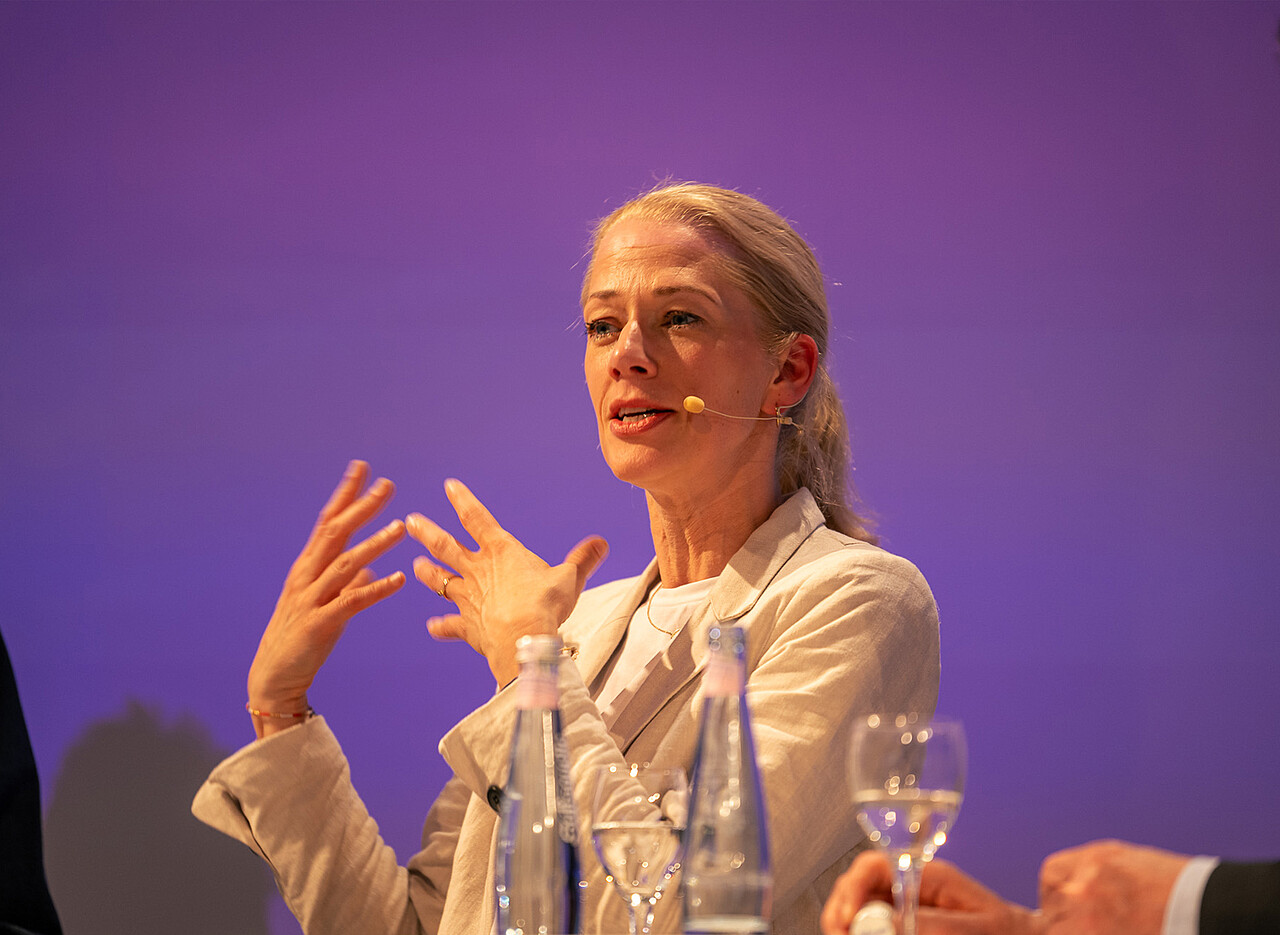
Why solidarity is so important
This year's 2nd Future Congress on “Managing the Social Economy” had a key topic that is at the core of the social economy: solidarity. It is one of the essential prerequisites for the successful work of companies and institutions in the social economy. Sirkka Jendis, managing director of Tafel Deutschland e.V., dedicated her keynote speech at the event to the challenges of social engagement in times of crisis. In the interview, she explains what the term means to her and how the Tafel promotes social solidarity.
What does the term solidarity mean to you?
To me, solidarity means that society takes responsibility for all its members and ensures that no one is left behind. It is the basic idea that people support and stand up for each other, especially in challenging times. Solidarity is also a source of strength when people develop a sense of belonging to a larger community and being able to effect positive change. It can be a form of self-affirmation and self-efficacy when you stand up for values and beliefs in which you believe and work together with like-minded people. Volunteering faces a number of challenges, especially in today's crisis-ridden times.
How can people who want to help others be supported?
In times of crisis or emergency, volunteers often play a crucial role in overcoming challenges and supporting those affected. Their willingness to show solidarity and help others in difficult times is an essential part of volunteering and cannot be valued highly enough. However, especially in recent years, we have seen how the multiple crises have pushed the volunteers to their limits. The numerous volunteers – at the food banks in Germany alone, they make up around 95 percent of our 60,000 helpers – keep things running in so many important areas and, among other things, ensure that people affected by poverty are supported with food. Without volunteering, many things would not work in Germany. It is crucial that policymakers set the structural framework for this and show volunteering the appreciation it deserves.
What is the situation regarding solidarity in our society in general?
I think that solidarity is still deeply rooted in German society as a guiding principle. In times of crisis in particular, we have seen an enormous strength of civil society engagement. In many areas, society shows a remarkable willingness to support each other and to overcome challenges together.
What is a social organization like Tafel Deutschland doing to promote social solidarity?
Tafel Deutschland has set itself the goal of reducing food waste and helping people affected by poverty by distributing food that would otherwise have been thrown away. Our work makes a significant contribution to promoting social solidarity. As a volunteer organization, we create community and promote engagement in solidarity-based action. The food banks are places where people from very different backgrounds come together and exchange ideas. The work of the umbrella organization Tafel Deutschland consists, among other things, of clearly highlighting and addressing the issues of poverty and food waste – for the general public as well as for politicians. This raises social awareness in society and, in the best case, further strengthens solidarity and attracts volunteers.
